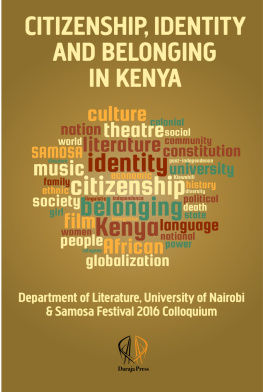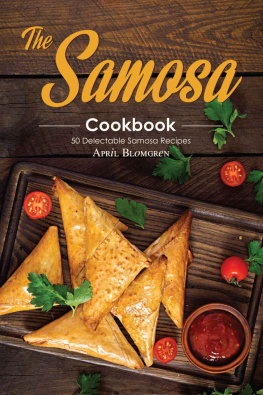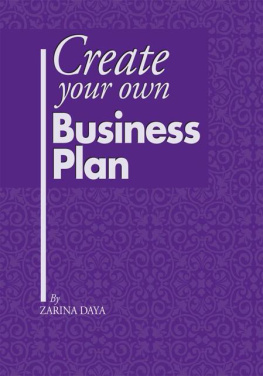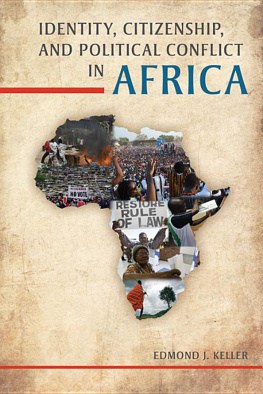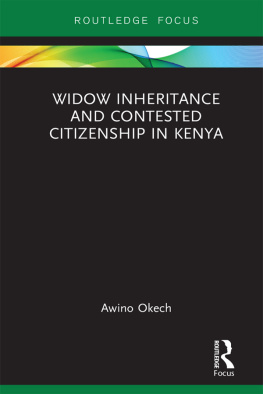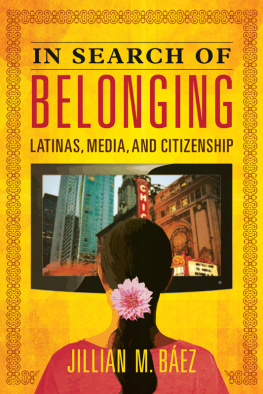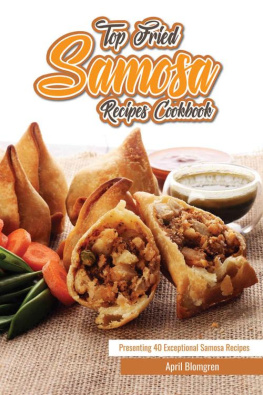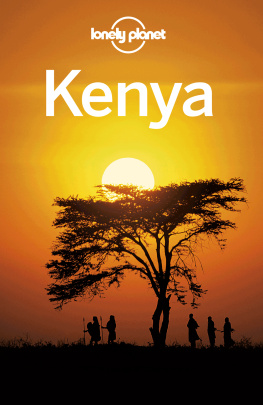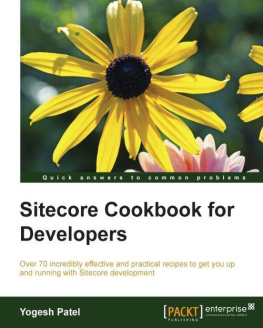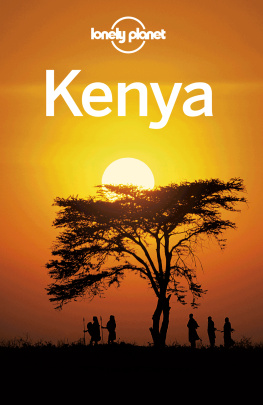Zarina Patel - Citizenship, Identity and Belonging in Kenya: University of Nairobi & Samosa-Festival Colloquium
Here you can read online Zarina Patel - Citizenship, Identity and Belonging in Kenya: University of Nairobi & Samosa-Festival Colloquium full text of the book (entire story) in english for free. Download pdf and epub, get meaning, cover and reviews about this ebook. year: 2017, publisher: Daraja Press, genre: Politics. Description of the work, (preface) as well as reviews are available. Best literature library LitArk.com created for fans of good reading and offers a wide selection of genres:
Romance novel
Science fiction
Adventure
Detective
Science
History
Home and family
Prose
Art
Politics
Computer
Non-fiction
Religion
Business
Children
Humor
Choose a favorite category and find really read worthwhile books. Enjoy immersion in the world of imagination, feel the emotions of the characters or learn something new for yourself, make an fascinating discovery.
- Book:Citizenship, Identity and Belonging in Kenya: University of Nairobi & Samosa-Festival Colloquium
- Author:
- Publisher:Daraja Press
- Genre:
- Year:2017
- Rating:5 / 5
- Favourites:Add to favourites
- Your mark:
- 100
- 1
- 2
- 3
- 4
- 5
Citizenship, Identity and Belonging in Kenya: University of Nairobi & Samosa-Festival Colloquium: summary, description and annotation
We offer to read an annotation, description, summary or preface (depends on what the author of the book "Citizenship, Identity and Belonging in Kenya: University of Nairobi & Samosa-Festival Colloquium" wrote himself). If you haven't found the necessary information about the book — write in the comments, we will try to find it.
Zarina Patel: author's other books
Who wrote Citizenship, Identity and Belonging in Kenya: University of Nairobi & Samosa-Festival Colloquium? Find out the surname, the name of the author of the book and a list of all author's works by series.
Citizenship, Identity and Belonging in Kenya: University of Nairobi & Samosa-Festival Colloquium — read online for free the complete book (whole text) full work
Below is the text of the book, divided by pages. System saving the place of the last page read, allows you to conveniently read the book "Citizenship, Identity and Belonging in Kenya: University of Nairobi & Samosa-Festival Colloquium" online for free, without having to search again every time where you left off. Put a bookmark, and you can go to the page where you finished reading at any time.
Font size:
Interval:
Bookmark:
Zarina Patel & Zahid Rajan

Citizenship, identity and belonging in Kenya : University of Nairobi; SAMOSA-Festival Colloquium / edited by Zarina Patel & Zahid Rajan.
SAMOSA Festival Joint Literary Colloquium held as part of the 2016
AwaaZ SAMOSA Festival held in Nairobi, Kenya, 9-27 July 2016.
Includes bibliographical references.
Issued in print and electronic formats.
ISBN 978-0-9953474-7-2 (softcover).ISBN 978-0-9953474-8-9 (ebook)
1. Nationalism and the artsKenyaCongresses. 2. ArtsKenyaCongresses.
3. NationalismKenyaCongresses. 4. KenyansRace identityCongresses. 5. SomalisRace identityKenyaCongresses. I. Patel, Zarina, 1935-, editor II. Rajan, Zahid, 1960-, editor III. SAMOSA Festival (7th : 2016 : Nairobi, Kenya)
IV. Title.
| NX180.N38C58 2017 | 700.452996762 | C2017-902343-8 |
| C2017-902344-6 |
- Somalis in particular, and the people of Eastleigh in general, are thieves, drug addicts and corrupt
- Somalis are terrorists
- Eastleigh is an area of the Underworld where dealing in stolen goods is the norm
Font size:
Interval:
Bookmark:
Similar books «Citizenship, Identity and Belonging in Kenya: University of Nairobi & Samosa-Festival Colloquium»
Look at similar books to Citizenship, Identity and Belonging in Kenya: University of Nairobi & Samosa-Festival Colloquium. We have selected literature similar in name and meaning in the hope of providing readers with more options to find new, interesting, not yet read works.
Discussion, reviews of the book Citizenship, Identity and Belonging in Kenya: University of Nairobi & Samosa-Festival Colloquium and just readers' own opinions. Leave your comments, write what you think about the work, its meaning or the main characters. Specify what exactly you liked and what you didn't like, and why you think so.

